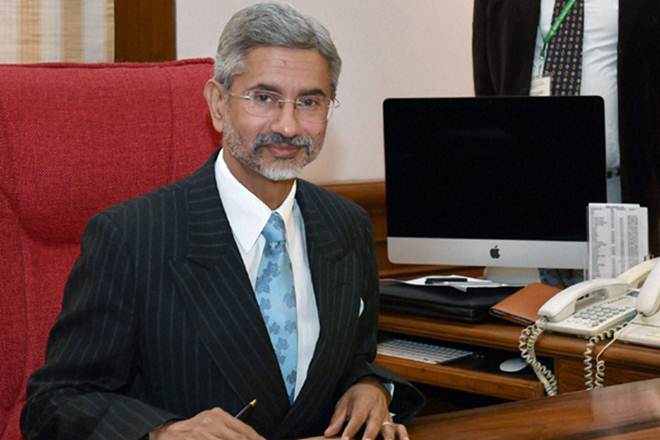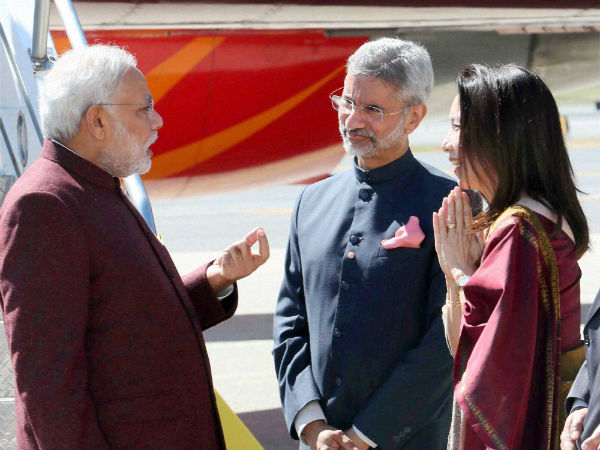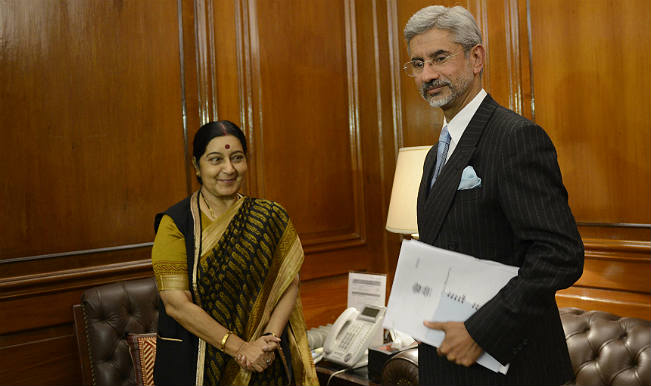As the term of Indian Foreign Secretary S Jaishankar comes to an end on January 28 this year, the focus will be on enumerating the milestones notched by the roller-coaster foreign policy of Prime Minister Narendra Modi with this seasoned diplomat on the driving seat. His close rapport with the Prime Minister Modi earned him two terms as foreign policy advisor post retirement – a rare accolade for a diplomat on his way out.
His dramatic ascent to this strategic post on January 29, 2015, a day before his retirement and after the dismissal of then foreign secretary Sujatha Singh, was itself a testimony of his trust laid by PM Modi looking for a seasoned diplomat who could spearhead his foreign policy on the US and China. Extension came naturally to him as he started delivering results.
Jaishankar, a 1977-batch IFS officer, has been ambassador to both the US and China – two countries of enormous importance in Modi’s worldview, albeit for different reasons.
The role of Jaishankar as the foreign secretary will be remembered in Indian diplomatic history for the country’s open engagement with the US-led Western world.
India’s desire to get closer to the US and repair its relations with the global superpower began during the first National Democratic Alliance (NDA) government headed by Atal Bihari Vajpayee. But it was the civil nuclear deal signed by former Prime Minister Manmohan Singh and former US President George W Bush that brought a tectonic change in ties between the two countries.
Modi bridged the ties with US and gave it a new dimension in his first visit in September 2014. Who can forget the grand reception accorded and the Modimania at Madison Square? That visit also set the stage for then US President Barack Obama’s visit to India as the chief guest on Republic Day.
The relationship between the two countries entered a different phase with the election of Donald Trump. Though Modi and Trump always give a warm hug when the two leaders meet, but the recent US curbs on the H-1B visa for the Indian techies has put the relation to a test.
S Jaishankar will also be remembered for his adroit handling of China, as he was one of the longest serving Indian ambassadors to this country. He played a key role in India-China negotiations last year to resolve the 73-day standoff between Indian Army and Chinese People’s Liberation Army at the Doklam Plateau, a tri-junction between China, India and Bhutan border near Sikkim.
India and China have a relationship that encapsulates both cooperative and competitive elements, which explains Narendra Modi’s frequent meetings with the Chinese leadership and a push for the economic agenda as well as creating room for greater Chinese investment.
Jaishankar’s role as ambassador to Beijing will be remembered for improving economic, trade and cultural relations between China and India, and in managing the Sino-Indian border dispute. In 2012, he became the first Indian ambassador in 10 years to visit Tibet.
Jaishankar was also instrumental in an upswing in India-Israel relations as Modi became the first of the nation’s prime ministers to visit the Jewish state. India had upgraded its relationship with Israel to a strategic partnership.
He has also served as Indian High Commissioner to Singapore from 2007 to 2009. During his tenure, he helped implement the Comprehensive Economic Cooperation Agreement (CECA) that expanded the Indian business presence in that country.
Jaishankar joined the IFS in 1977, and started with a stint as Third and Second Secretary (Political) in Moscow in what was still the Soviet Union from 1979 to 1981. He then served as Undersecretary on the Americas desk in South Block, which he headed as joint secretary from 2004 to 2007 – the time that India negotiated the civil nuclear agreement with the US. He is one of the few diplomats who has known Moscow, Washington, Beijing and ASEAN well.
The distinguished diplomat earned a PhD and MPhil at Jawaharlal Nehru University (JNU), New Delhi, and comes from a prominent family. His father, K Subrahmanyam, is the acknowledged father of strategic thinking in India. One of his brothers, Sanjay Subrahmanyam, is a historian; another is former rural development secretary S Vijay Kumar. His mother has a PhD in music from Delhi University. Jaishankar is married to Kyoko and has two sons and a daughter.
Though Indian Prime Minister Narendra Modi is known for his aggressive foreign policy and penchant for wooing foreign leaders but behind the scene is the story of hard labour of quiet architect of Modi’s foreign policy in the form of S Jaishankar.





